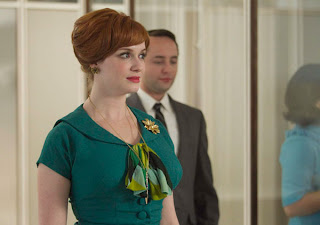PAUL CORNELL LITERALLY KNOCKS IT OUT OF THE PARK WITH HIS ASTONISHING NEW NOVEL LONDON FALLING
I love the idea of Urban Fantasy. Angel sits next to Buffy as my other favourite television show of all time. The second instalment of Stephen King's Dark Tower sequence, The Drawing of the Three, is a defining book for me. And formative texts aside, there are a number of other Urban Fantasy stories I appreciate, enjoy even. But not that many that I out and out love. The Harry Dresden novels are a case in point: it's not even that they leave me mildly disappointed, but three books in and I'm yet to experience those wellsprings of excitement where I need the darned books to get by. Perhaps one day; there's another one on my shelves after all.
Urban Fantasy novels concerned with an Other London have become something of a genre unto themselves, and a popular one at that. Here I fare better, with a smattering of personal favourites falling under this peculiar umbrella. Neil Gaiman's Neverwhere of course. But also China Mieville's Un Lun Dun and the Rivers of London series by Ben Aaronovitch. Obviously Paul Cornell's offering to this sub-sub-genre has drawn its most immediate comparisons to Aaronovitch. Both ex-Doctor Who writers, friends and colleagues, and each exploring the idea of London police investigating the supernatural, it's understandable. But there the similarities end.
London Falling (Tor, 2012) is its own Beast, and a fine, darkly cast Beast it is too.
Early on in the book, with the investigative team starting to pull together (meet Quill, Lisa Ross, Costain and Sefton), it struck me that I wanted to spend a hell of a long time with these characters, in this world. I thanked the gods that it was only the first book in what will become the Shadow Police series. I couldn't bear to think that this was all there was, and I hadn't even got to the really, really great stuff yet. Cornell has himself used the shorthand description of London Falling as The Bill meets Buffy. The Buffy comparison is particularly apt in his approach to the team. He sketches their personalities strongly at the beginning, then throws them together in supernatural crisis. From there on they have to work through their personal demons whilst dealing with monsters of the very real sort. Cornell's use of the metaphorical is bold yet subtle, which is something Buffy did expertly time and again.
There is a witch to stop, an urban myth to escape and true horror to cope with, a horror made all the more disturbing by its being otherworldly
and close to home (close to the bone even). I'm not going to go into spoiler territory. Just read the book for yourselves. London Falling is a completely immersive experience, throwing you into a world that is begging for its own fandom to salivate over. Paul's constant readers may even spot the odd theme or note from the likes of British Summertime, but developed even more fully in this, his finest piece of fiction to date.
London Falling is a masterful and suspenseful work that perfectly balances full bodied characterisation with awe inspiring world building. It also has much to say about the times we live in. Paul Cornell may well just have written the best example of Urban Fantasy yet.







































